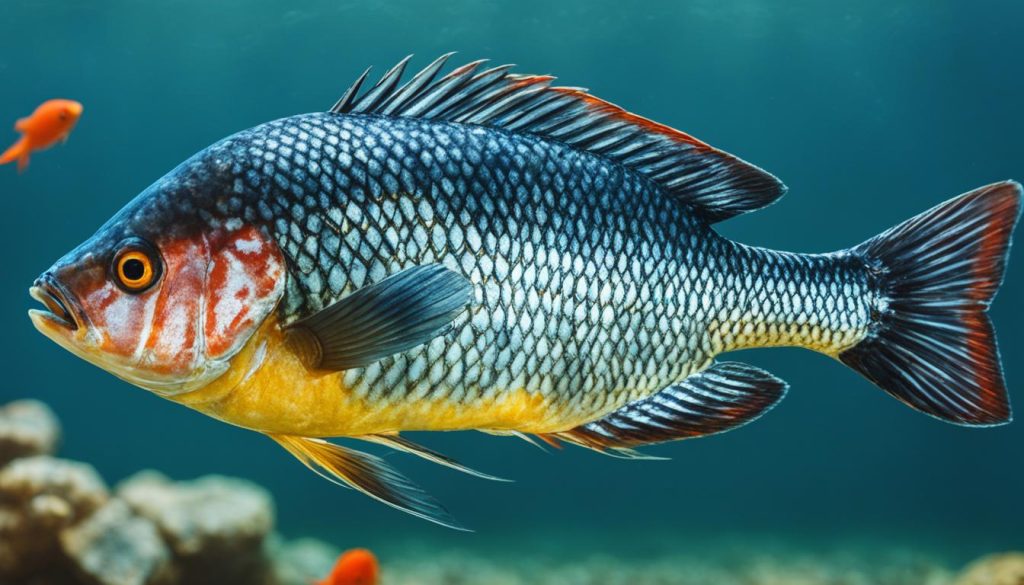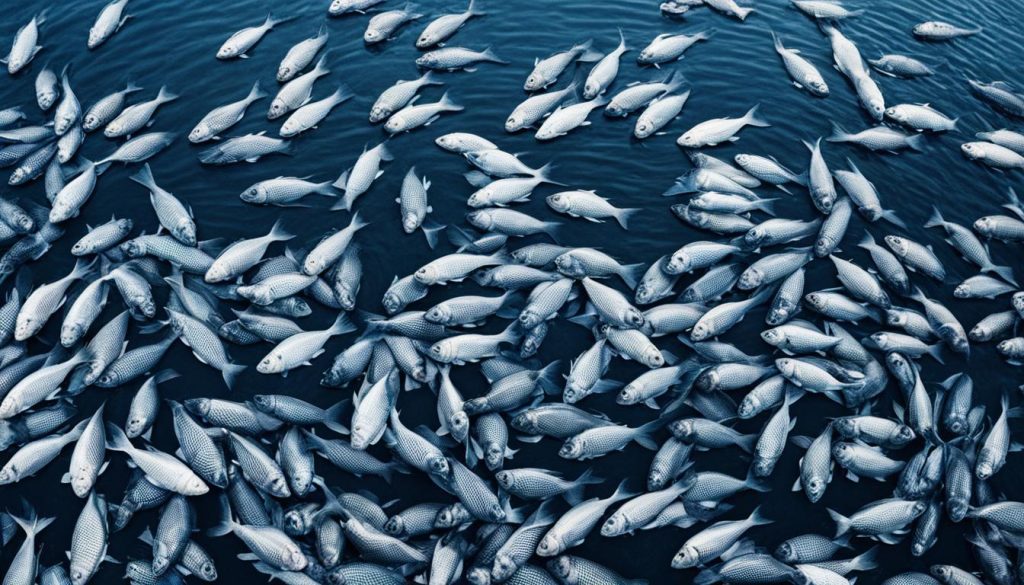When it comes to our food choices, there are always debates about what is healthy and what is not. One such debate revolves on the claim: eating tilapia is worse than eating bacon. While some argue that tilapia, known for its affordability and availability, is a safe source of lean protein, others claim that it poses potential health risks due to farming practices. On the other hand, bacon, loved for its savory taste, is criticized for its high saturated fat content and association with heart disease.
In this article, we will examine the facts and uncover the truth about eating tilapia and bacon. We will explore their nutritional value, potential health risks, and even delve into the controversy surrounding their farming practices. By the end of this article, you’ll have a clearer understanding of the pros and cons of including these foods in your diet.
Eating Tilapia Is Worse Than Eating Bacon
- Eating tilapia and bacon is a subject of debate in terms of their impact on health.
- Tilapia is often hailed as an affordable source of lean protein, but concerns exist about its farming practices.
- Bacon is known for its high saturated fat content, which has been linked to heart disease.
- Consider the nutritional value and potential health risks when making food choices.
- Understanding sustainable farming practices is crucial in evaluating the overall impact of these foods.
The Debate: Farm-Raised Tilapia vs. Bacon
The ongoing debate surrounding farm-raised tilapia and bacon centers around their differing nutritional value and potential health risks. Critics argue that farm-raised tilapia poses dangers due to concerns over inflammation, pesticides, antibiotics, and lower levels of essential nutrients. Conversely, bacon faces criticism for its high saturated fat content and association with heart disease. To fully understand the implications of consuming these foods, it is crucial to closely examine these claims and consider their overall impact on human health.
When comparing the nutritional value of tilapia and bacon, one might wonder which is healthier. Tilapia is often praised as a low-fat source of lean protein, containing essential nutrients like vitamin B12, selenium, and potassium. Although it may have a lower omega-3 fatty acid content compared to fatty fish, tilapia still provides a moderate amount of these important fatty acids. However, some studies suggest that eating tilapia may be associated with inflammation, although the exact impact on human health remains uncertain. It is essential to consider the quality of tilapia and its farming practices when evaluating its potential health effects.
On the other hand, bacon is known for its high saturated fat content, a factor traditionally linked to heart disease. Its consumption has also been associated with higher cholesterol levels and increased cancer risk. Despite these risks, bacon can be a valuable source of protein and essential nutrients such as iron and vitamin B12. Moderation is key when including bacon in a balanced diet, taking into account its contribution to overall nutritional intake.
Considering the potential dangers associated with eating bacon and tilapia, it is essential to make informed food choices. While some argue that tilapia may pose health risks due to farming practices, others emphasize its nutritional benefits. Similarly, bacon is criticized for its saturated fat content and potential health risks but can still offer vital nutrients. Ultimately, attaining a balanced diet requires considering multiple factors, including nutritional value, potential health risks, and sustainable farming practices. It is advisable to consult reliable sources and evaluate individual preferences and dietary needs when deciding on the inclusion of tilapia or bacon in one’s diet.
Examining the Facts: Tilapia Nutrition and Health Effects
Tilapia, a low-fat source of lean protein, offers several essential nutrients that contribute to overall health. It is rich in vitamin B12, selenium, and potassium, promoting various bodily functions and supporting optimal well-being. While tilapia may contain lower levels of omega-3 fatty acids compared to fatty fish like salmon, it still provides a moderate amount of these heart-healthy fats.
Research has examined the potential health effects of consuming tilapia, with some studies suggesting a link to inflammation. However, the overall impact of tilapia consumption on human health remains uncertain. It is essential to consider the quality of the tilapia and farming practices when evaluating its potential health benefits and risks.
When comparing tilapia to other fish, it is important to note that different types of fish offer varying nutritional profiles. While tilapia might not match the omega-3 content of fatty fish, it can still serve as an excellent source of lean protein and essential nutrients.
Now, let’s delve into a detailed nutrition comparison between tilapia and another popular food: bacon.
Nutrition Comparison – Tilapia vs. Bacon
| Nutrient | Tilapia (100g) | Bacon (100g) |
|---|---|---|
| Protein | 26g | 13g |
| Calories | 128 | 541 |
| Total Fat | 2g | 42g |
| Saturated Fat | 0.7g | 15g |
| Cholesterol | 56mg | 93mg |
As shown in the table above, tilapia is a leaner choice compared to bacon, with lower total fat, saturated fat, and cholesterol. It also provides more protein per serving while containing significantly fewer calories. These nutritional differences highlight the contrasting health profiles of the two foods.

Now that we have explored tilapia’s nutrition and health effects, it’s time to uncover the truth about bacon and its potential impacts on our well-being.
Unveiling the Truth: Bacon Nutrition and Health Risks
When it comes to the subject of bacon, there are often conflicting opinions. While bacon is undoubtedly tasty and a versatile ingredient, it is important to understand its nutrition profile and potential health risks.
The Nutrition Facts of Bacon
Bacon is known for its rich, savory flavor and crispy texture. However, it is also high in saturated fat and sodium, which can contribute to health concerns if consumed in excess. A typical serving of bacon contains approximately 42% of the recommended daily intake of saturated fat and 23% of the recommended daily intake of sodium.
On the positive side, bacon is a good source of protein, providing essential amino acids that are necessary for muscle growth and repair. It also contains nutrients such as iron and vitamin B12, which are important for maintaining healthy blood cells and optimal brain function.
The Health Risks of Bacon
While bacon can be enjoyed as an occasional indulgence, it is essential to be aware of its potential health risks. The high saturated fat content in bacon has been linked to an increased risk of heart disease and raised cholesterol levels. Excessive consumption of bacon may also contribute to weight gain and increase the risk of developing certain types of cancer.
It is important to note that these health risks are associated with regular and excessive bacon consumption. Enjoying bacon in moderation, as part of a balanced diet that includes plenty of fruits, vegetables, and whole grains, can help minimize these risks.
The Benefits of Eating Bacon
Despite the potential health risks, bacon does offer some benefits when consumed in moderation. As mentioned earlier, bacon is a good source of protein and contains essential nutrients like iron and vitamin B12. It can also add flavor and depth to a variety of dishes, making it an appealing ingredient for many.
For bacon lovers, trying out leaner options like turkey bacon or reducing portion sizes can be alternative ways to enjoy the taste while reducing the negative health effects. Pairing bacon with fresh vegetables or whole grains can also help create a more balanced meal.
While bacon can be enjoyed as a flavorful treat, it is important to consume it in moderation and consider its impact on overall health. Including a variety of other protein sources, such as fish, poultry, beans, and nuts, can help diversify your diet and promote a healthier lifestyle.
Evaluating Sustainable Farming Practices
When comparing the tilapia vs bacon debate, one important aspect to consider is sustainable farming practices. Both tilapia and bacon production have their own unique challenges and potential risks to the environment and human health.
Some argue that tilapia farming practices, especially in certain countries, raise concerns about antibiotic use, bacterial contamination, and their overall impact on the environment. These concerns have led to debates about the safety and sustainability of consuming tilapia. Understanding the potential health risks associated with tilapia consumption is essential for making informed food choices.
Bacon production, on the other hand, presents its own set of sustainability challenges. Industrial pig farming practices have been criticized for their negative impact on animal welfare and the environment. The large-scale production of bacon involves significant resource consumption and contributes to greenhouse gas emissions. Considering these issues is essential when evaluating the environmental implications of consuming bacon.

As consumers, we have the power to influence the agricultural industry by supporting sustainable farming practices. By choosing to consume food from sources that prioritize environmentally friendly practices, we can contribute to a more sustainable and ethical food system.
When deciding between tilapia and other meats or bacon, it’s important to take into account not only the nutritional value but also the impact of your food choices on the environment. Opting for sustainably sourced meats and considering alternative options for seafood can be beneficial for both personal health and the well-being of the planet.
Navigating the Controversy: Making Informed Food Choices
With conflicting claims about the health risks and benefits of eating tilapia and bacon, it can be challenging to make informed food choices. Both tilapia and bacon have their own nutritional profiles and potential health risks, making it important to consider multiple factors before deciding which option is better for you.
When comparing the nutrition of tilapia and bacon, it is essential to look at key aspects such as protein content, fat composition, and essential nutrients. Tilapia is known for being a lean source of protein, while bacon contains higher levels of saturated fat. However, bacon also provides important nutrients like iron and vitamin B12.
Another factor to consider is potential health risks. Some argue that eating tilapia may come with risks due to farming practices, including the use of antibiotics, pesticides, and lower levels of desirable nutrients. On the other hand, bacon has been associated with health issues such as heart disease and increased cancer risk due to its high saturated fat content.
Additionally, sustainable farming practices play a crucial role in making informed food choices. The farming practices involved in tilapia production, especially in certain regions, have raised concerns about the use of antibiotics, bacterial contamination, and the environmental impact. Similarly, industrial pig farming for bacon production raises environmental and animal welfare concerns.
When it comes to deciding between tilapia and bacon, it’s important to balance these factors with individual dietary needs and preferences. Consider the nutritional value, health risks, and sustainable farming practices of both options. Remember that a healthy and sustainable diet is about making balanced choices that align with your goals and values.
By carefully considering these factors, you can make informed food choices that promote a healthy and sustainable diet.
Conclusion: Eating Tilapia Is Worse Than Eating Bacon
The health effects of tilapia and bacon are nuanced, with both having their pros and cons. While tilapia is often criticized for its farming practices and potential health risks, it is also a lean protein source that provides essential nutrients. On the other hand, bacon is known for its high saturated fat content and associated health risks, but it can offer important nutrients as well.
When considering whether bacon is healthier than tilapia, it is essential to evaluate the overall context and individual dietary needs. Consulting reliable sources and weighing the nutritional value, health risks, and sustainability of these foods can help inform your choices.
While some may choose to avoid tilapia due to concerns about farming practices, it is still possible to enjoy it responsibly by opting for sustainably sourced options. Ultimately, making informed food choices involves balancing various factors and considering your personal preferences and health goals.
Remember, maintaining a well-rounded diet that includes a variety of nutrient-dense foods is crucial for overall health. Consider incorporating a balance of lean proteins, fruits, vegetables, whole grains, and healthy fats to support your well-being.
FAQ
Is eating tilapia worse than eating bacon?
The debate over whether eating tilapia is worse than eating bacon is complex and multifaceted. There are arguments on both sides, with different perspectives on the nutritional value and potential health risks of each food. It’s essential to consider multiple factors, such as overall nutritional value, health risks, and sustainable farming practices, to make an informed choice.
What are the health risks of eating tilapia?
While some claim that eating tilapia may be associated with inflammation and concerns about farming practices, the overall impact on human health is still unclear. It’s important to consider the quality of tilapia and farming practices when evaluating its potential health effects.
What are the health risks of eating bacon?
Bacon is criticized for its high saturated fat content, which has been linked to an increased risk of heart disease, higher cholesterol levels, and potentially increased cancer risk. However, bacon can also provide essential nutrients like iron and vitamin B12. It should be consumed in moderation as part of a balanced diet.
Which is healthier, tilapia or bacon?
The healthiness of tilapia versus bacon depends on various factors, including nutritional value, potential health risks, and individual dietary needs. While tilapia is a lean source of protein with essential nutrients, it may have concerns regarding farming practices. Bacon, on the other hand, is high in saturated fat but offers its own nutritional benefits. Balancing these factors and consulting reliable sources can help guide decision-making.
What is the nutritional value of tilapia?
Tilapia is a low-fat source of protein that contains essential nutrients such as vitamin B12, selenium, and potassium. It is lower in omega-3 fatty acids compared to fatty fish like salmon but still provides a moderate amount. However, the overall nutritional value can vary based on the quality of tilapia and farming practices.
What is the nutritional value of bacon?
Bacon is a processed meat with a high saturated fat content. However, it is also a good source of protein and provides essential nutrients like iron and vitamin B12. It should be consumed in moderation as part of a balanced diet due to its potential health risks.
What are the dangers of eating tilapia?
Concerns regarding the dangers of eating tilapia primarily revolve around farming practices. These include antibiotic use, bacterial contamination, and potential environmental impact. Evaluating the quality and sourcing of tilapia can help mitigate these risks.
What are the dangers of eating bacon?
The high saturated fat content of bacon is associated with an increased risk of heart disease, higher cholesterol levels, and potentially increased cancer risk. It’s important to consume bacon in moderation and consider its overall contribution to a balanced diet.
Can you compare the nutrition of tilapia and bacon?
Tilapia is a lean source of protein with essential nutrients like vitamin B12, selenium, and potassium, while bacon is high in saturated fat but provides protein, iron, and vitamin B12. The nutritional value of each food differs, and individual dietary needs and preferences should be considered when comparing them.
Why should someone avoid tilapia?
The decision to avoid tilapia may stem from concerns about farming practices, including antibiotic use, bacterial contamination, and potential environmental impact. However, it’s important to evaluate the sourcing and quality of tilapia before making a decision.
What are the benefits of eating bacon?
Bacon can provide protein, iron, and vitamin B12. However, it should be consumed in moderation due to its high saturated fat content and potential health risks. Balancing these factors with overall dietary needs and preferences is crucial.




